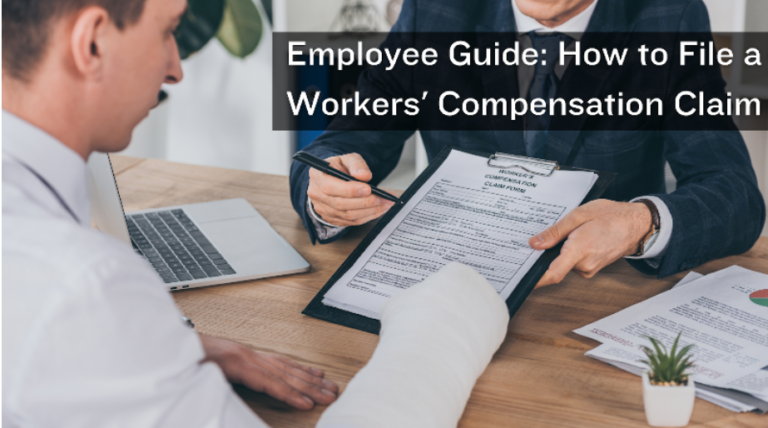Have you suffered a workplace injury or illness and feel overwhelmed by the process of filing a workers’ compensation claim? If so, this comprehensive guide is for you. This step-by-step guide unravels the complexity, providing invaluable insights to ensure you receive the financial support and medical care you’re entitled to.
From understanding state regulations to navigating denials, you’ll gain the tools to fight for your rights confidently. Empower yourself by reading on – let this be your roadmap to a successful claim.
Understand Your Rights and Eligibility
Know State-Specific Workers’ Compensation Regulations
Workers’ compensation regulations vary by state, with each jurisdiction having its own set of laws and guidelines. Before initiating a claim, familiarize yourself with the specific requirements in your state to understand what qualifies as a compensable injury or illness. The U.S. Department of Labor’s website offers a state-by-state overview of workers’ compensation laws to help you get started.
For example, in California, workers have one year from the date of injury to file a workers’ compensation claim. The state allows employees to choose their own doctor for treatment, but employers may provide a list of approved healthcare providers.
If you’re based in Los Angeles and need assistance navigating the claim process, consider consulting with a workers compensation attorney Los Angeles to ensure you meet all deadlines and requirements.
Check Employer Requirements
In addition to state regulations, your employer may have specific reporting and form submission requirements. Review your company’s workers’ compensation policy or employee handbook to ensure you comply with their procedures.
Initial Medical Assessment
Seek immediate medical attention for your injury or illness, even if it seems minor. This initial assessment will establish crucial documentation for your claim and ensure you receive appropriate treatment.
Initiating the Claim Process
Register for an ECOMP Account
To file a workers’ compensation claim, you must first register for an Employees’ Compensation Operations and Management Portal (ECOMP). ECOMP is a free web-based application. You do not need approval from your supervisor or anyone else at your agency to initiate your FECA workers’ compensation claim.
File the Appropriate Claim Form
Once you register for an ECOMP account, you will be able to file either Form CA-1 ‘Notice of Traumatic Injury’ (for a single event trauma) or Form CA-2 ‘Notice of Occupational Disease’ (for repeated exposure).
Notify Your Employer
Prompt notification is essential when filing a workers’ compensation claim. Verbally report the injury or illness to your direct supervisor as soon as possible, ideally within 24 hours. Follow up with a written report as required by your company’s policy.
File an Incident Report
Accurately complete and submit an incident report to your employer or their workers’ compensation insurer. This report should detail the circumstances surrounding the injury or illness, including the date, time, location, and any witnesses present.
Ensure you file the report within the state-mandated window, as missing deadlines can jeopardize your claim.
Collect and Submit Documentation
Medical Records
Secure comprehensive documentation of your injury or illness, including medical reports, treatment plans, and any diagnostic tests or imaging. These records will serve as crucial evidence in support of your claim.
Witness Statements
If coworkers witnessed the incident that led to your injury or illness, gather corroborating statements from them. These statements can provide valuable context and support for your claim.
Official Claim Form
Complete the appropriate state or employer claim form, providing detailed information about the incident, your medical treatment, and any time missed from work. Accuracy and completeness are essential when filling out these forms.
Work with the Claims Administrator
Understand Their Role
Once you’ve submitted your claim, a claims administrator from your employer’s workers’ compensation insurer will be assigned to investigate the validity of your claim. Their role is to determine the legitimacy of the claim and the extent of benefits they may be entitled to.
Cooperate Fully
Cooperate fully with the claims administrator by providing any requested information promptly and accurately. Failure to do so can delay or jeopardize your claim.
Stay Proactive
Remain proactive throughout the process by following up with the claims administrator regularly to stay informed about the status of your claim.
Claim Filing Requirements Across States
Here’s a comparison table highlighting some key differences in workers’ compensation claim filing requirements across a few states:
| State | Reporting Deadline | Choice of Doctor | Appeal Deadline |
| California | 1 year from injury date | Employee’s choice | 1 year from denial |
| New York | 30 days from the injury date | Employer’s list | 2 years from injury date |
| Texas | 30 days from the injury date | Employer’s choice | 1 year from denial |
| Florida | 30 days from injury date | Employer’s choice | 2 years from denial |
This table highlights the variations in reporting timelines, healthcare provider selection, and deadlines for appeals across different states. It’s essential to familiarize yourself with the specific guidelines in your state to ensure compliance.
Appeal If Necessary
Prepare for a Denial
It’s not uncommon for workers’ compensation claims to be initially denied, with some studies suggesting that up to 20% of claims face an initial denial. Understand your rights and be prepared for the possibility of a denial.
Initiate the Appeals Process
If your claim is denied, you have the right to file a formal appeal, typically with your state’s workers’ compensation board or commission. The appeals process can be complex, so consider seeking assistance from a workers’ compensation attorney who can guide you through the legal proceedings.
Frequently Asked Questions (FAQs)
- How long after an injury can you claim workers’ compensation?
The time frame for filing a workers’ compensation claim varies by state but is typically between 30 days and 1 year from the date of injury. For example, in California, workers have one year from the injury date to file a claim.
- What is a paraplegic injury worth in workers’ compensation claims in California?
Paraplegic injuries, which result in paralysis of the lower body, typically qualify for lifetime benefits in California. This includes coverage for medical expenses, lost wages, and substantial compensation for permanent disability.
- Can I choose my doctor for treatment?
Some states allow employees to select their own doctor for treatment, while others require using healthcare providers approved by the employer or their workers’ compensation insurer. It’s essential to familiarize yourself with your state’s regulations regarding healthcare provider choice.
- How long does it take to receive workers’ compensation benefits?
The time frame for receiving benefits can vary based on the complexity of the claim and the state’s processing times. In general, if a claim is approved, temporary disability benefits should begin within 14 to 21 days, while permanent disability benefits may take longer to determine.
- What if my employer disputes my workers’ compensation claim?
If your employer or their insurer disputes your claim, you have the right to appeal the decision. The appeals process typically involves presenting additional evidence and testimony to support your claim before a workers’ compensation judge or board.
File Your Claim
Don’t let a workplace injury or illness derail your financial stability and well-being. Initiate the workers’ compensation claim process with confidence by following the comprehensive guidelines outlined in this post. Stay informed, gather thorough documentation, and cooperate fully to maximize your chances of a successful outcome.
If faced with a denial, seek legal counsel – a workers’ compensation attorney can guide you through the appeals process, protecting your rights every step of the way. Empower yourself and take action today to secure the benefits you deserve.





